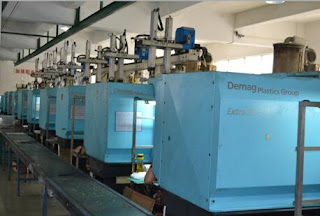Machining Of Mold Inserts and Dies
Molding is a quite
profitable process for manufacturing industries when it comes to creating parts
of various shapes and designs. The method ensures an efficient production along
with bulk product creation and high accuracy. The machining of molds, dies and housing
depends on various factors such as shape, design, dimensions, tolerance,
various parts, die and mold materials, and also the sequence of production. Industries
have their own needs of dies and molds. Plastic industry uses injection
molding, extrusion, hot pressing or blow molding. Dies are intended for casting
and forging. Dies allow the production of parts made of sheet metal by the
methods of bending, sheering or drawing. Dies and molds are also essential for powder
metallurgy manufacturing.
Die and mold materials
depend on the product design, product material, and also the production method.
For instance, molds for creating plastic parts are usually made of stainless
steel, steel or aluminum. In some cases, half mold may be made of aluminum and
other half of stainless steel. Machining of these mold parts, therefore,
requires highly specialized skills (of the operator) and great accuracy and excellent
surface quality to ensure top grade outcomes.
Mould inserts machining for complicated molds require various steps, final polishing and
grinding of the flat surfaces. Die material that uses high-quality steel and
has excellent heat resistance need better machining and profile milling. These
are meant for heavy duty machining.
Nowadays,
manufacturers of dies and molds strive hard to replace the costly grinding and
polishing steps. They aim to do so by using hard machining following heat
treatment at finishing or semi-finishing machining conditions. This allows
savings in the form of time and money. It has become possible with the development
of new geometries, high speed machining options, and cutting materials.
Companies can have
better mould inserts machining options with Nicety Mould, engaged in
engineering, design and mould building.


Comments
Post a Comment